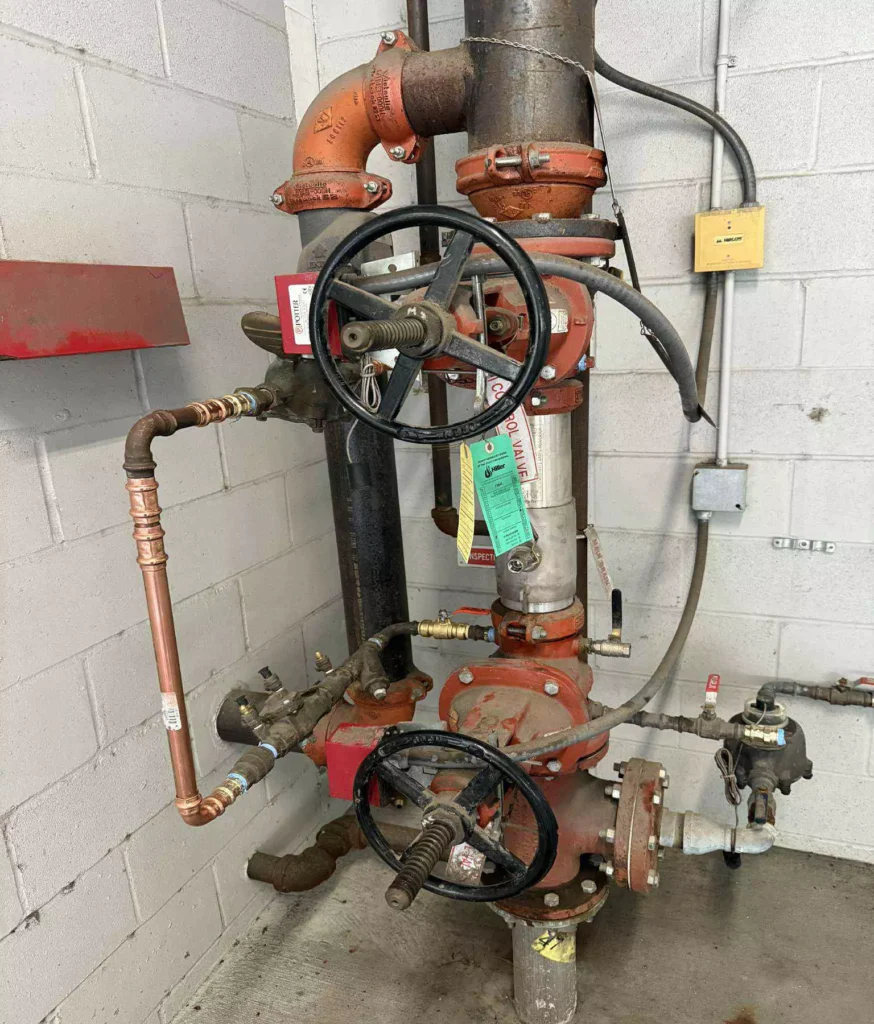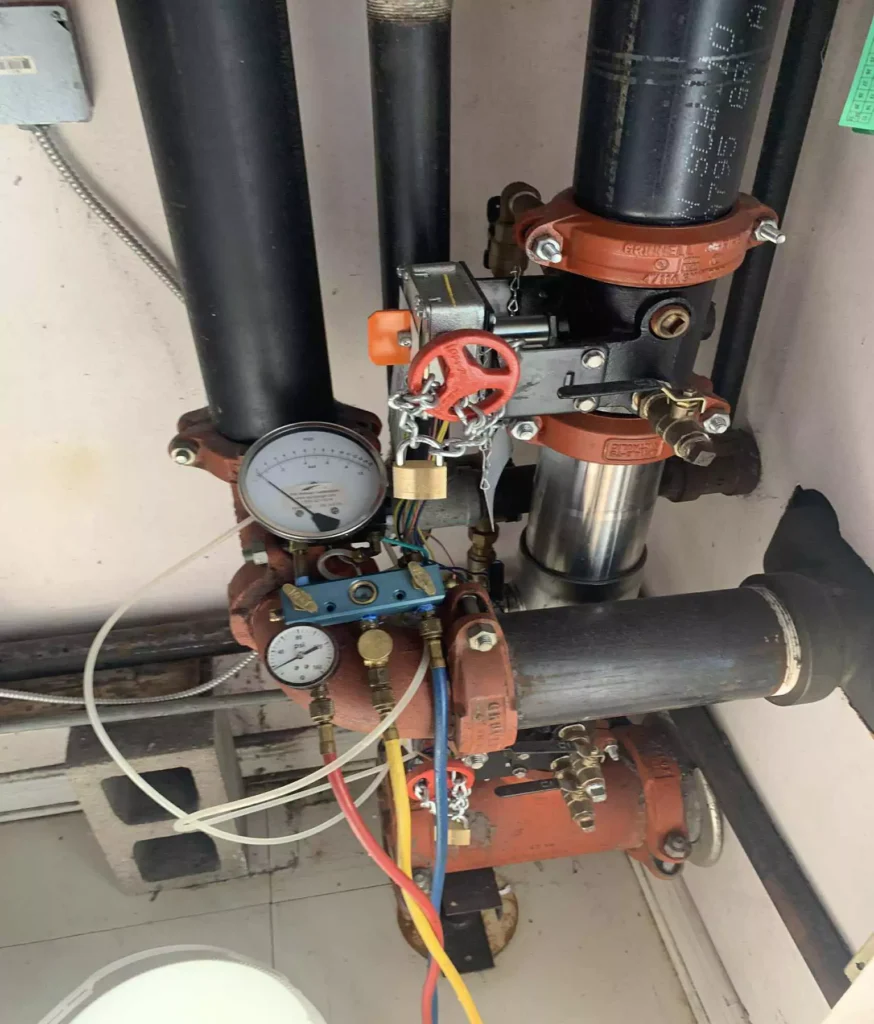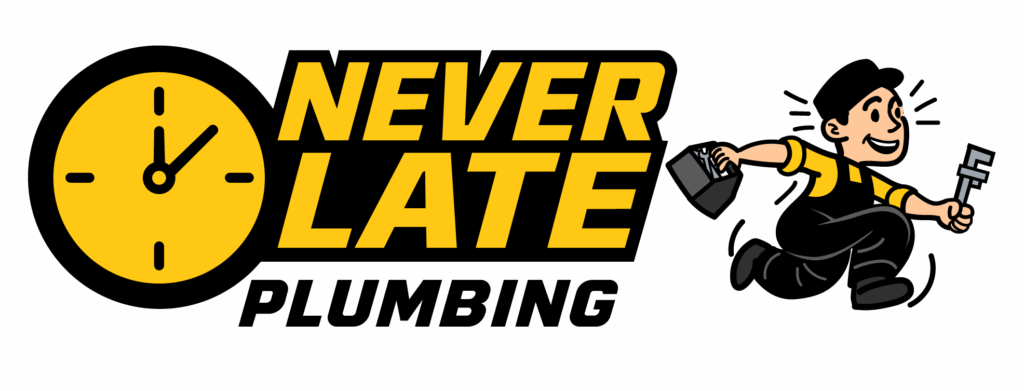Backflow Preventers
Claim Your Annual Backflow Testing Coupon
Never Late Plumbing – Annual Backflow Testing Made Easy
New Orleans now requires every business to have their backflow preventer inspected once a year. Never Late Plumbing makes it effortless with our Annual Backflow Testing Subscription:
- No Scheduling Hassles – Sign up once, and we’ll come out every year to complete your test automatically.
- Helpful Yearly Reminders – We’ll reach out before your test in case your business has moved or your needs have changed.
- Fast & Professional – We will do our best to quickly and efficiently test your backflow device and turn the water back on quickly. We carry an extensive line of Backflow replacement parts to ensure fast repairs if necessary.
- Flat Rate* – Just $250 per year. With auto renew subscription. $295 one time testing fee up to and including 2". Call for quotes on larger devices. (*Any necessary repairs, replacement, or rebuilding of backflow device will incur extra expense and someone will call to discuss and get approval before proceeding. )
- Secure & Simple – Enter your payment info once, and we’ll bill you automatically each year until you cancel.
Stay compliant. Save time. Never worry about missing your inspection again.
Sign up today and lock in your annual backflow testing for $250.


Never Late Plumbing – Annual Backflow Testing Made Easy
New Orleans now requires every business to have their backflow preventer inspected once a year. Never Late Plumbing makes it effortless with our Annual Backflow Testing Subscription:
- No Scheduling Hassles – Sign up once, and we’ll come out every year to complete your test automatically.
- Helpful Yearly Reminders – We’ll reach out before your test in case your business has moved or your needs have changed.
- Fast & Professional – We will do our best to quickly and efficiently test your backflow device and turn the water back on quickly. We carry an extensive line of Backflow replacement parts to ensure fast repairs if necessary.
- Flat Rate* – Just $250 per year. With auto renew subscription. $295 one time testing fee up to and including 2". Call for quotes on larger devices. (*Any necessary repairs, replacement, or rebuilding of backflow device will incur extra expense and someone will call to discuss and get approval before proceeding. )
- Secure & Simple – Enter your payment info once, and we’ll bill you automatically each year until you cancel.
Stay compliant. Save time. Never worry about missing your inspection again.
Sign up today and lock in your annual backflow testing for $250.


In any plumbing system, water is meant to flow in one direction only: from the clean public supply (the city main) into your home or business.
Backflow is the undesirable reversal of this flow, where water from a private property flows backward into the public water lines. When this happens, it can carry dangerous contaminants with it, creating a serious public health risk.
Previously, backflow prevention was primarily addressed during new construction or major renovations, and enforcement could be inconsistent from one parish or water district to another.
The significant change is a statewide initiative to actively enforce the regulations outlined in the Louisiana Administrative Code (Title 51, Part XII), which requires public water systems to be protected from cross-connections.
Common sources of contamination (called “cross-connections”) include:
Lawn Irrigation Systems
Fertilizers, pesticides, and animal waste.
Boilers
Water treated with anti-corrosive chemicals.
Commercial Properties
Submerged in pools, Hospitals, labs, car washes, and restaurants where chemical and biological contaminants are present. of soapy water, or puddles.
Hoses
Submerged in pools, buckets of soapy water, or puddles.
Lawn Irrigation Systems
Fertilizers, pesticides, and animal waste.
Hoses
Submerged in pools, buckets of soapy water, or puddles.
Boilers
Water treated with anti-corrosive chemicals.
Commercial Properties
Hospitals, labs, car washes, and restaurants where chemical and biological contaminants are present.
If you have irrigation systems, swimming pools, or other setups where water could potentially flow backward, a backflow preventer is crucial. Signs that you may need one include frequent fluctuations in water pressure or unusual water quality issues, like sudden discoloration or odd tastes. These devices are particularly important in areas with strict municipal codes, as many cities require backflow prevention on certain types of connections to protect the community water supply.
Backflow preventers require regular inspection to ensure they are working properly. Most municipalities recommend testing annually, though some situations may call for more frequent checks. While some maintenance, like cleaning debris from the device, can be done on your own, professional inspections are the best way to ensure your system is compliant and functioning correctly. Licensed plumbers have the tools and expertise to test valves, identify potential issues, and repair or replace components before they lead to water contamination.
A correctly installed backflow preventer provides peace of mind and protects your home and community from waterborne hazards. Beyond safety, a functioning device can prevent costly plumbing repairs that result from contaminated water entering your system. It also helps maintain proper water pressure throughout your home, keeping showers, appliances, and irrigation systems operating smoothly. Choosing a reputable plumbing service ensures that your backflow preventer is installed according to code, tested regularly, and maintained efficiently, giving you long-term reliability.

